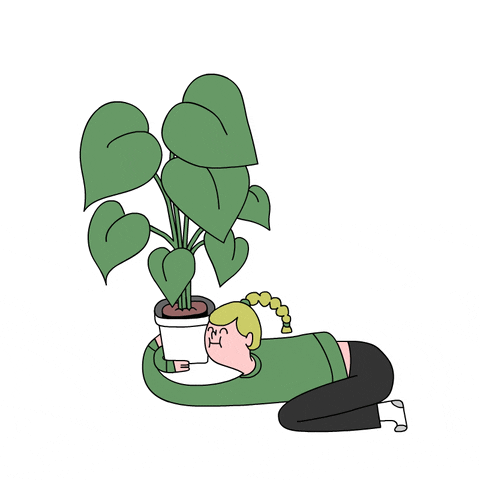Plants, like humans, require regular nutrients for sustenance and survival. These vital nutrients are typically supplied in the form of fertilizers.
In this article, we will explore some organic liquid fertilizers capable of enhancing plant growth and prolonging the life of your beloved greens.
Top Organic Liquid Fertilizers for Plants
1. Cow Dung Liquid Fertilizer:

Crafted from cow dung cakes, this fertilizer is rich in nutrients and easy to make. Dilute before applying to plants for comprehensive nourishment.
Benefits:
1. Serves as a comprehensive nutrient source for plants, rich in micronutrients alongside NPK.
2. Regular application over 2-3 months results in noticeable growth, vitality, and robustness of plants.
3. Naturally fortifies plants, ensuring sustained strength and vigorous growth.
4. Enhances soil quality, extending moisture retention and reducing water requirements post-application.
2. Neem Cake Tonic:

Made from neem cake, this tonic fortifies plants internally, protecting roots from pests and fungal attacks. It enhances soil quality and boosts plant immunity.
Benefits:
1. Fortifies plants internally, safeguarding roots against pest and fungal attacks.
2. Strengthens plant immunity, inhibiting insect, snail, or ant invasions.
3. Enhances soil quality, improving moisture retention and nutrient availability.
4. Acts as a natural pesticide and fungicide, promoting plant health and vitality.
Suitable for: It is suitable for all types of plants and promotes shiny, healthy leaves.
3. Banana Peel Liquid Fertilizer:

Despite myths, banana peel fertilizer doesn’t attract ants. Rich in potassium and phosphorus, it promotes robust flowering and fruiting in plants.
Benefits:
1. Rich source of potassium and phosphorus, promoting robust flowering and fruiting in plants.
2. Enhances soil fertility and microbial activity, improving overall plant health.
3. Eco-friendly and sustainable way to recycle kitchen waste, reducing environmental impact.
4. Improves soil structure and moisture retention, reducing water requirements.
4. Onion Peel Liquid Fertilizer:

Derived from dry onion peels, this fertilizer is effective for foliage plants, enhancing growth and leaf shine. Apply monthly for best results.
Benefits:
1. Enhances plant growth and leaf shine, promoting overall plant health.
2. Enriched with essential nutrients including sodium, magnesium, phosphorus, potassium, and more.
3. Suitable for foliage plants, encouraging robust growth and vitality.
4. Eco-friendly and cost-effective solution for plant nourishment.
5. Seaweed Liquid Fertilizer:

Seaweed liquid fertilizer is made from extracting and processing seaweed, typically varieties such as kelp or algae.
- Soaking or fermenting the seaweed in water to release nutrients and beneficial compounds.
- Filtering or straining the liquid to produce a nutrient-rich fertilizer solution.
Benefits of Seaweed Liquid Fertilizer:
1. Seaweed liquid fertilizer contains a wide range of micronutrients, including but not limited to iron, zinc, manganese, copper, and boron.
2. Rich source of trace minerals, vitamins, and plant growth hormones essential for plant health and growth.
3. Enhances root development, leading to stronger and healthier plants.
4. Boosts plant immunity, making them more resistant to stress, diseases, and pests.
5. Improves soil structure and fertility, promoting microbial activity and nutrient uptake.
Best for:
- All types of plants indoor, outdoor, vegetables and flowering plants.
6. Kitchen Compost Tea Liquid Fertilizer:

Made from composted kitchen waste, this fertilizer is rich in nutrients and beneficial microorganisms. It improves soil health and enhances plant growth.
Benefits:
-
- Provides a nutrient-rich solution for plant growth, promoting healthy foliage and robust root development.
- Enhances soil structure and fertility, improving moisture retention and nutrient availability.
- Contains beneficial microorganisms that support plant health and suppress soil-borne diseases.
- Eco-friendly way to recycle kitchen waste and nourish your garden without chemical additives.
These magical tonics possess potent qualities, capable of elevating your plants to the next level, showcasing magnificent growth. Utilize them to breathe new life into your garden and enhance its vitality.
Application Tips:

1. Dilution:

Always follow the manufacturer’s instructions for dilution rates to avoid over-fertilizing, which can harm your plants.
2. Frequency:
Most liquid fertilizers should be applied every 1-2 weeks during the growing season.
3. Application Method:

Use a watering can or garden sprayer to apply the fertilizer to the base of the plants, ensuring even distribution.
Plant-Specific Needs:

Different plants have different nutrient requirements, so choose a fertilizer that matches your plants’ needs.







































 Kitchen compost is an organic fertilizer made from kitchen waste or scraps. It is a process by which kitchen waste and food scraps are biologically decomposed.
Kitchen compost is an organic fertilizer made from kitchen waste or scraps. It is a process by which kitchen waste and food scraps are biologically decomposed. 










